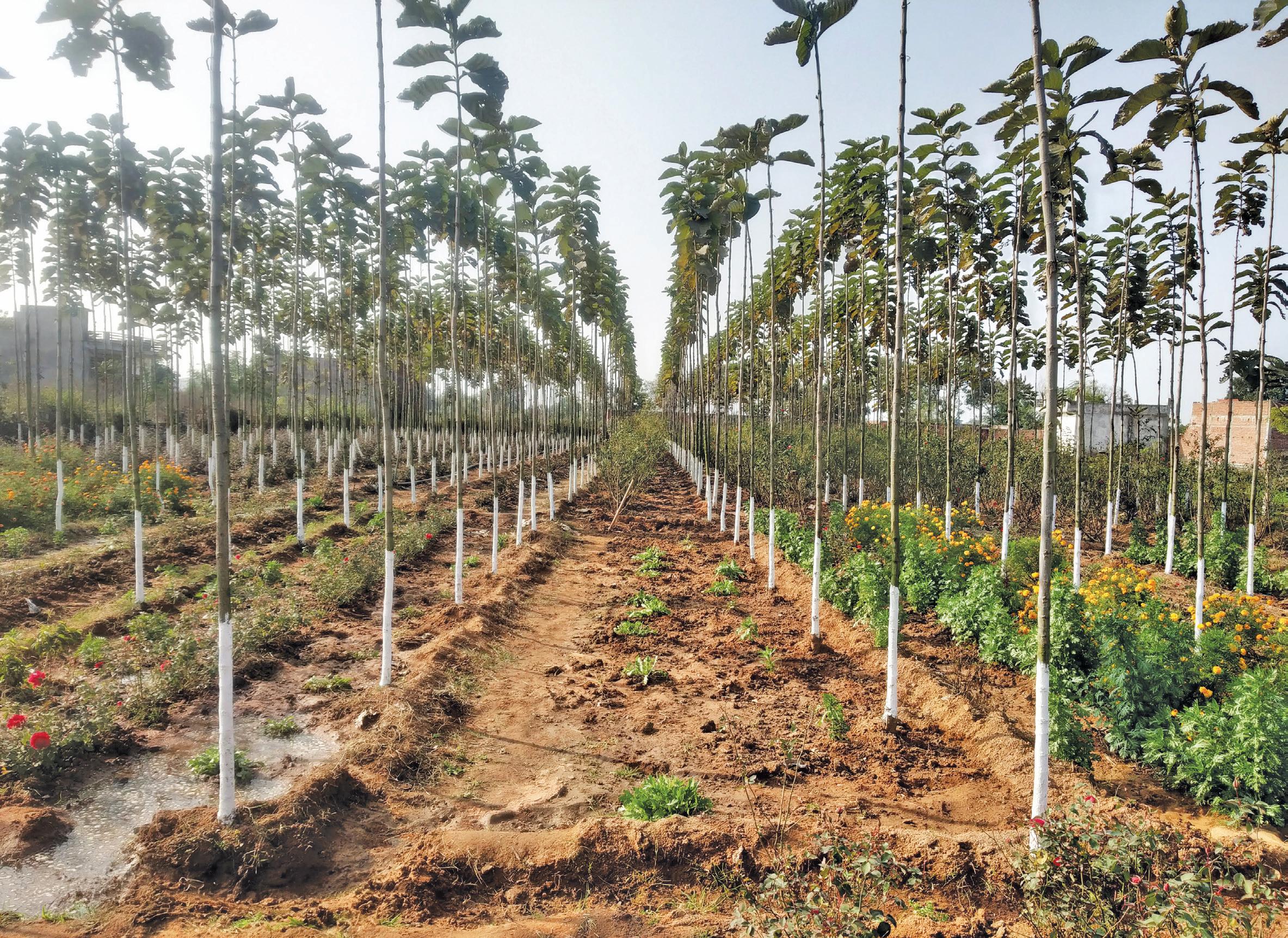
TEAK HAS been the flagship species of plantation activities in India. In fact, teak cultivation has been linked to generating substantial income not only for large landowners but also for small and marginal farmers. The rush to set up teak plantation began after the National Forest Policy 1988 was formulated. The policy imposed a ban on the felling of green trees in government-owned forests and recommended meeting the timber demand from private lands. Soon, the prices of teak (Tectona grandis) logs, valued for a variety of commercial purposes including high-end furniture, soared by over 500 per cent.
To cash in on this opportunity, many nursery owners and private agencies came up with teak planting schemes. Records indicate that thousands of companies operated in the market to promote such schemes in India.
Companies promoted tissue culture saplings, claiming that they would earn three to five times more profit than the plants grown using traditional methods from seeds and stumps. Returns were assured in the shortest time span of eight to 12 years. Some companies sold teak saplings at ₹400 to ₹2,500 each and promised returns of ₹50,000 to ₹1,00,000 per tree after 20 years. Such advertisements attracted thousands of farmers to invest in teak plantations, particularly from the rural regions of Maharashtra, Andhra Pradesh, Karnataka, Tamil Nadu and Madhya Pradesh. States such as Madhya Pradesh rolled out plantation subsidies, prompting farmers to plant teak with high density. Some private nursery owners also passed off teak seedlings as tissue culture plants. Even today, in the name of tissue culture, seed originated teak saplings are being sold at ₹100-₹250 and are claimed to provide a yield of 1 cubic metre (m³) of timber per tree in eight to 12 years, at a density of 2,500- 4,000 trees per hectare.
This story is from the {{IssueName}} edition of {{MagazineName}}.
Start your 7-day Magzter GOLD free trial to access thousands of curated premium stories, and 9,000+ magazines and newspapers.
Already a subscriber ? Sign In
This story is from the {{IssueName}} edition of {{MagazineName}}.
Start your 7-day Magzter GOLD free trial to access thousands of curated premium stories, and 9,000+ magazines and newspapers.
Already a subscriber? Sign In

A SPRIG TO CARE FOR
Punarnava, a perennial herb, is easy to grow and has huge health benefits

DIGGING A DISASTER
Soapstone mining near Dabti Vijaypur village has caused many residents to migrate.

REVIEW THE TREATMENT
Several faecal sludge treatment plants in Uttar Pradesh suffer from design flaws that make the treatment process both expensive and inefficient

MAKE STEEL SUSTAINABLE
As India works to double its GDP by 2030, its steel industry must balance growth with sustainability. By embracing policies like the Steel Scrap Recycling Policy 2019 and adopting green technologies, India is paving the way for a more sustainable future in steel production

Can ANRF pull off the impossible for India?
Anusandhan National Research Foundation is expected to reorient India's innovation goals but funding issues, old mindsets remain a drag

TROUBLED WOODS
Forests are a great bulwark against climate change. But this is fast changing. AKSHIT SANGOMLA travels through some of the pristine patches of the Western Ghats to explore how natural disturbances triggered by global warming now threaten the forest health

BLINDING GLOW
The science is clear: increased illumination has damaging consequences for the health of humans, animals and plants. It’s time governments introduced policies to protect the natural darkness and improved the quality of outdoor lighting.

GROUND REALITY
What happens when the soil loses the ability to grow healthy, high-yield crops on its own?

GM POLICY MUST BE FARMER CENTRIC
On July 23, the Supreme Court of India directed the Union government to develop a national policy on genetically modified (GM) crops for research, cultivation, trade and commerce through public consultation.

Vinchurni's Gandhi
A 96-year-old farmer transforms barren land into a thriving forest in drought-prone region of Satara